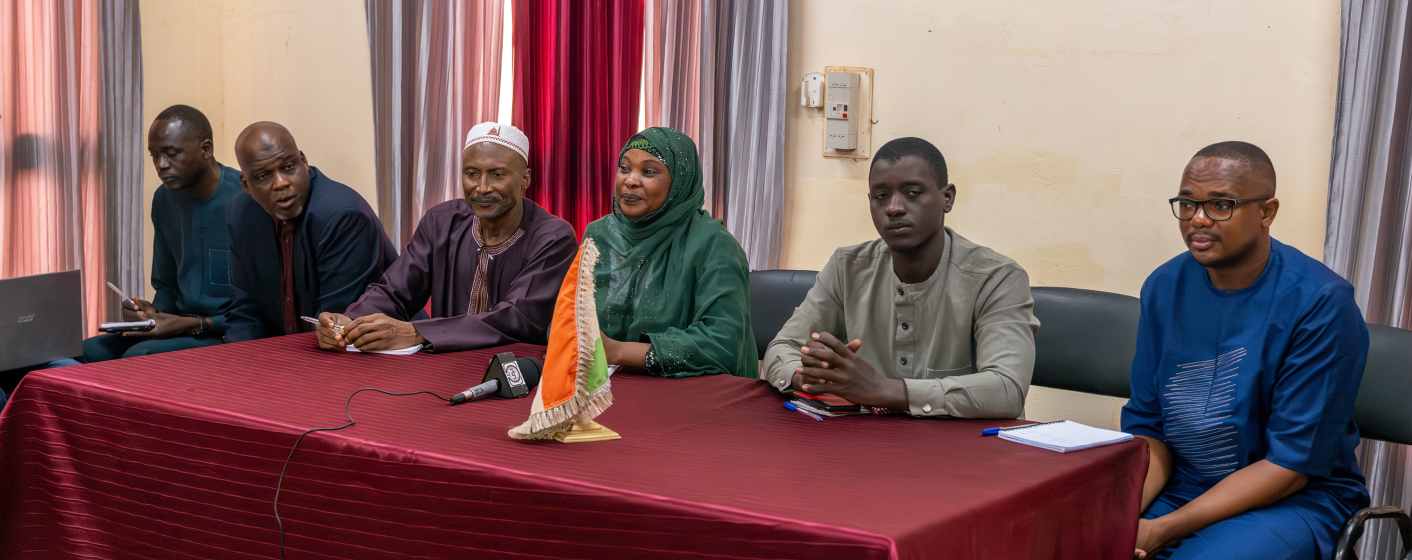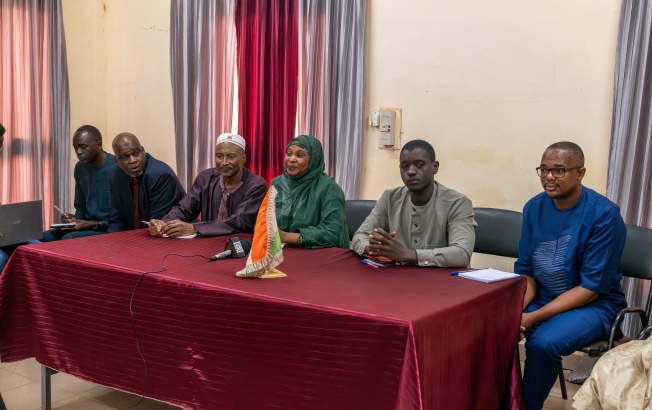Improving Schools with Local Data, the Shawara Karatu initiative
In Niger, school data could provide a precise overview of local educational challenges. With the assistance of IIEP-UNESCO and its Support for Education Quality Management Program supported by the French Development Agency, the country aims to better record and analyze this relevant information for the development of pedagogical strategies tailored to specific needs.
*This article concerns activities carried out before July 2023.
In Niger, students' shortcomings are a cause for concern. Educational authorities are mobilized to improve these learning experiences, but it is crucial to know the exact difficulties, which can sometimes be specific to local realities. If the country had a reliable school database used by authorized individuals, it could precisely identify the issues responsible for low performance.
This is the conclusion reached by teams trained by the International Institute for Educational Planning of UNESCO during observations in schools, educational inspections, as well as at the Ministry of National Education of Niger, within the framework of IIEP-UNESCO's Support for Education Quality Management Program, supported by the French Development Agency.
Crucial Information
Among the archived school data in Niger, one can find school statistics, assessment results, and various reports: quarterly, at the beginning of the school year, inspection reports, etc. This information, which could shed light on students' success and the challenges faced across the country, are generally transmitted without issue to each level of the administration, but only for the purpose of demonstrating that a part of the school year has concluded.
However, leveraging this data could allow for lessons to be learned and taken into account in order to develop pedagogical or organizational strategies tailored to specific needs. In light of this, Niger has launched the Shawara Karatu initiative, which means "Dialogue and Consultation on Education" in Hausa (one of the national languages), still with the support of IIEP-UNESCO.
The objective of this initiative is for each of the 266 municipalities in Niger - which are competent in managing basic education but have very variable material and financial resources - to easily mobilize and exploit the school data concerning them, discuss the identified difficulties, and promptly address these real problems.
Data that Drive Action
A first experiment of Shawara Karatu was carried out in two Nigerien municipalities. For each locality, the archived school data were analyzed. In order to have the most precise vision possible of the obstacles facing the municipality, interviews were conducted with those involved in education on the ground.
During these gatherings also known as "Communal Days for Monitoring Academic Achievements (JCSAS)", actors playing a role in education at the local level are brought together, such as inspectors, school directors, evaluation officers, as well as municipal agents, local elected officials, associations, and village or religious leaders. These are individuals who do not typically have the opportunity to discuss these crucial subjects of school enrollment and the success of their children, based on information that directly concerns them.
Following the discussions, it was decided to implement priority actions that could be accomplished in less than three months. "Starting from the data allows for a precise understanding of what is happening in the municipality," according to Moussa Hamani Ounteni, an expert in planning and institutional analysis at IIEP-UNESCO. "Participants in the Communal Days study these urgent issues from all angles and work together to find solutions to overcome them." Two to three times a year, a new meeting is organized to assess the effectiveness of the implemented changes and propose new ones.


